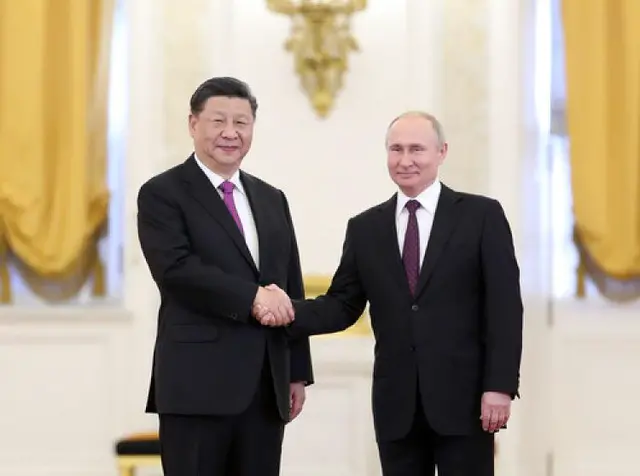As the countdown is ticking for Egyptian parliamentary elections, experts see that the current political parties are not strong enough to form an influential parliament in the near future.
Some refer the reasons to the declining opposition in Egypt since the new leadership launched its "anti-terrorism war" following the removal of first democratically-elected, Islamist former President Mohamed Morsi by the army in July 2013 and the following massive security crackdown on his supporters.
Others blame it on the new election law regulating the upcoming parliamentary elections, which specifies 420 seats out of total 540 seats for independents while only 120 seats for distinctive categories, including women, Copts, youth, workers, farmers, people of special circumstances, etc.
ELECTION LAW
"Article 5 of the constitution states that the Egyptian political system is based on multiparty; however, the new electoral system pushes political parties away and opens door for wealthy people to compete for 80 percent of the parliament seats," said Hussein Abdel-Razik, political expert and leading member of Tagammu Party.
Abdel-Razik told Xinhua that political parties demanded before that 100 percent of seats to be elected through the proportional list system but their request was declined.
He added that political parties in Egypt were banned from 1953 to 1976 and when they limitedly returned in 1976 they were restricted by law and not allowed to work among public gatherings, including universities, companies, factories, etc.
"After recent upheavals, some of these limits disappeared but parties are still restricted to work at universities and among masses," the expert told Xinhua, lamenting the difficulty to change the situation of political parties in Egypt that lasted for over 40 years only in a few years.
"If there is a real intention for democratic transition, the current leadership should give a larger space for freedom of political parties," he concluded.
REGIME NOT TO BLAME
Gamal Salama, head of political science department at Suez University, sees that the regime is not to blame for the weakness of political parties and attributed the reason for their unpopularity.
"The weakness of political parties is not the fault of the regime, but it is the fault of the communication skills of these parties and the society that does not respond to them," the professor told Xinhua.
Salama agrees that the coming parliament will not see a strong presence of political parties because the overwhelming majority will be independent parliamentarians.
"I believe the weakness of political parties is not dangerous at the current stage because Egypt simply doesn't have strong parties and citizens are not largely represented by political parties," the professor said.
MUBARAK'S ACQUITTAL
An Egyptian court has recently acquitted ousted President Hosni Mubarak, his two sons Gamal and Alaa and six of his top security aides, including his interior minister Habib al-Adli, of financial corruption and responsibility for killing protesters in January 2011.
A lot of media outlets in Egypt also belong to businessmen loyal to the ex-president and his dismantled ruling National Democratic Party (NDP) and they could easily run for parliamentary elections or support NDP-affiliate candidates in the upcoming elections, using the influence of their wealth and media.
"Mubarak's acquittal was a shock for the Egyptian people and it may affect the upcoming parliamentary elections but the citizens and their awareness represent the cornerstone for a democratic future," Saeed al-Lawindi, political researcher and expert at Al-Ahram Center for Political and Strategic Studies, told Xinhua.
The expert added that Egypt has a political isolation law that can restrict NDP members or Mubarak's loyalists from rejoining the political life in the country.
For his part, Adel al-Qalla, former parliamentarian and head of Egypt Arab Communist Party, said that Mubarak's acquittal gave his loyalists "a great hope" for returning to political life.
"In light of the current election law, the political parties in Egypt will remain weak for the coming five years, and if Mubarak's loyalists garner more than 20 or 30 percent of the seats, it will be such a useless and controversial parliament," Qalla told Xinhua.
Qalla believes that the best way for the coming parliament is to be free from supporters of the two former regimes of Mubarak and Morsi.
ELECTION DELAY
After overthrowing Morsi, the new leadership outlined a three-stage roadmap including presidential elections, a new constitution to replace the Brotherhood-supervised one and parliamentary elections. The first two stages have been done but the third have been repeatedly delayed.
The new constitution states that the procedures of the parliamentary elections must start within six months of approving the new constitution, which was approved in January.
In July 15, a presidential decree ordered formation of the election committee in July 15 and the government considered the order the start of electoral procedures as stated in the constitution.
"The real start is supposed to include inviting voters, opening the door for candidacy, voting, etc, but they considered convening the election committee as a start," Abdel-Razik exclaimed, describing the move as "a political game they played in order not to start the elections and not to violate the constitution at the same time."
The leading Tagammu Party member said the reason for the delay is that there are some people who think that the president should continue holding the legislative authority to facilitate implementation of his decrees, ideas and policies for the best interest of the country. "They want to turn the president into a dictator despite his will," he added.
Salama believes that the delay of parliamentary elections for several times could have legal and political reasons.
"Legally, because the election law about electoral districts is not finished; and politically because of the regime's lack of a political party to represent it in the parliament and support its decrees," the political science professor told Xinhua. Enditem
 简体中文
简体中文

